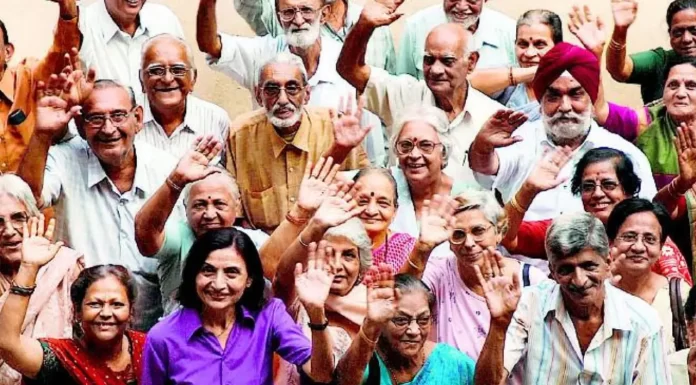During my recent meeting with the retired Chief Secretary of a State, I realised the gravity of issues affecting retired and senior citizens in the country. She mentioned the risks and unknown fears amongst retired and senior citizens whose children live in other cities or countries. Even if financially secure, there are emotional, social, and security concerns. Trusting people, especially those relied upon for basic needs such as household help, vegetable sellers, repair mechanics, house repair personnel, painters, and laundry services, is a significant challenge. There is a greater need for the reliability of all whose support is essential, especially for senior citizens living alone.
Some issues are addressed by setting up old age homes, but their impact is limited. Many senior citizens are emotionally attached to the homes they built and do not want to live in an old age home. Some cannot afford it, and some are reluctant to leave their surroundings and build new relationships in such locations. The issue is mainly emotional and cannot be fully addressed by “Old Age Homes”.
An initiative by Ratan Tata promotes the provision of professionals and volunteers to support elderly citizens in fulfilling some emotional needs. However, are these individuals trained to meet all requirements? Some new start-ups also provide basic household services, including nurses and mechanics, but this support is mostly limited to urban areas and is almost nonexistent in rural areas.
It is projected that the elderly population (over 60 years) will exceed the number of children below 5 years by 2050. Senior citizens in rural India are economically more vulnerable than those in urban areas. The support required for senior citizens in urban areas in an Indian context will differ from that needed in rural India. The state needs to adopt various interventions to address the challenges for senior citizens in India.
The National Policy on Senior Citizens 2011 focuses on issues related to senior citizens and suggests policy-level interventions. Government efforts have mainly been in financial support (pension, tax relief, extra interest on savings), security (special helpline numbers), physical infrastructure (Old Age Homes, Day Care Centres, Community Centres with facilities for entertainment, libraries, medical care, etc.), and support for pilgrimage in some states. However, the issues of geriatric care cannot be addressed solely by the government; community involvement is crucial.
How does the state make the community responsible and incentivise them to care for all the elderly in their areas? Elderly care needs to be holistic and comprehensive, addressing financial, social, emotional, and health aspects. It should be primarily in situ, within the community where the elderly live, supported first by family, then by society, and state institutions in that order. Panchayati Raj institutions, supported by ASHA and Anganwadi workers, can be incentivised to support the elderly in their villages. A database of each elderly person, prepared by the ASHA worker, should identify the necessary interventions. Each household in the village should be assigned the responsibility of looking after elderly individuals living alone. The community needs to provide food, medical support, and emotional support to such elderly. The Panchayat should allocate a fixed budget to support the elderly. Ensuring the elderly benefit from all government schemes should be the ASHA worker's responsibility.
The National Policy on Senior Citizens identifies areas of intervention such as income security, PDS, income tax, micro-finance, healthcare, safety and security, housing, reemployment/productive engagement, welfare funds, and emergency measures. It also outlines the implementation mechanism for these interventions, delineating the roles and responsibilities of government institutions, local bodies, and NGOs, and proposes the establishment of a National Commission and National Council for Senior Citizens.
Encouraging and incentivising the community (Panchayat, housing society) to take responsibility for supporting the elderly is essential. The wisdom and experience of the elderly can be effectively utilised at the local and national levels in socio-economic and cultural development. The elderly can be ambassadors for promoting rich heritage, traditions, and culture in an emerging world driven by social media and technology.
Elderly and ageing populations should be viewed as assets rather than liabilities. The state needs to redefine their roles in the community. Special interventions are needed, and there is a need to design a course in geriatric care, incorporating it into school curriculums up to class 12. Such courses can offer tremendous employment opportunities in India and abroad. The government could set up a Sector Skill Council under the Ministry of Skill Development to train youth interested in this profession. This aligns with the government's vision of skilling youth in emerging areas with high potential abroad. Geriatric care professionals with language skills could meet the needs of countries like Japan and the UK, which face issues related to elderly populations.
There is a greater need for all stakeholders to focus on the elderly in the community. Designing a model for elderly care in India can serve as an example for other developing countries, and India could lead the initiative to have a year declared as the Year of the Elderly by the United Nations. However, before that, an “Indian Model” of geriatric care must be established to gain global acceptance. Our traditional culture of Gram Swaraj, Ayurveda, and community ownership (co-operative society) can be demonstrated for other countries to adopt and assimilate to meet the emerging challenges of geriatric care.
Political parties have not announced a specific approach or strategy for geriatric care in their manifestos. One party extended the “Ayushman Bharat scheme“—health insurance up to Rs 5 lakhs—to all persons above 70 years. However, no comprehensive policy for the emerging elderly population in India has been announced. Given the critical and multi-stakeholder involvement required for elderly issues, it may be advisable to establish a new “Ministry of Elderly – Geriatric Care” at the central government level. This ministry could address all issues of the elderly comprehensively. The new government, within its first 100 days, should consider this aspect and formulate an effective approach and strategy for the elderly, recognising them as assets for the nation by utilising their experience, knowledge, and wisdom for the new generation.








